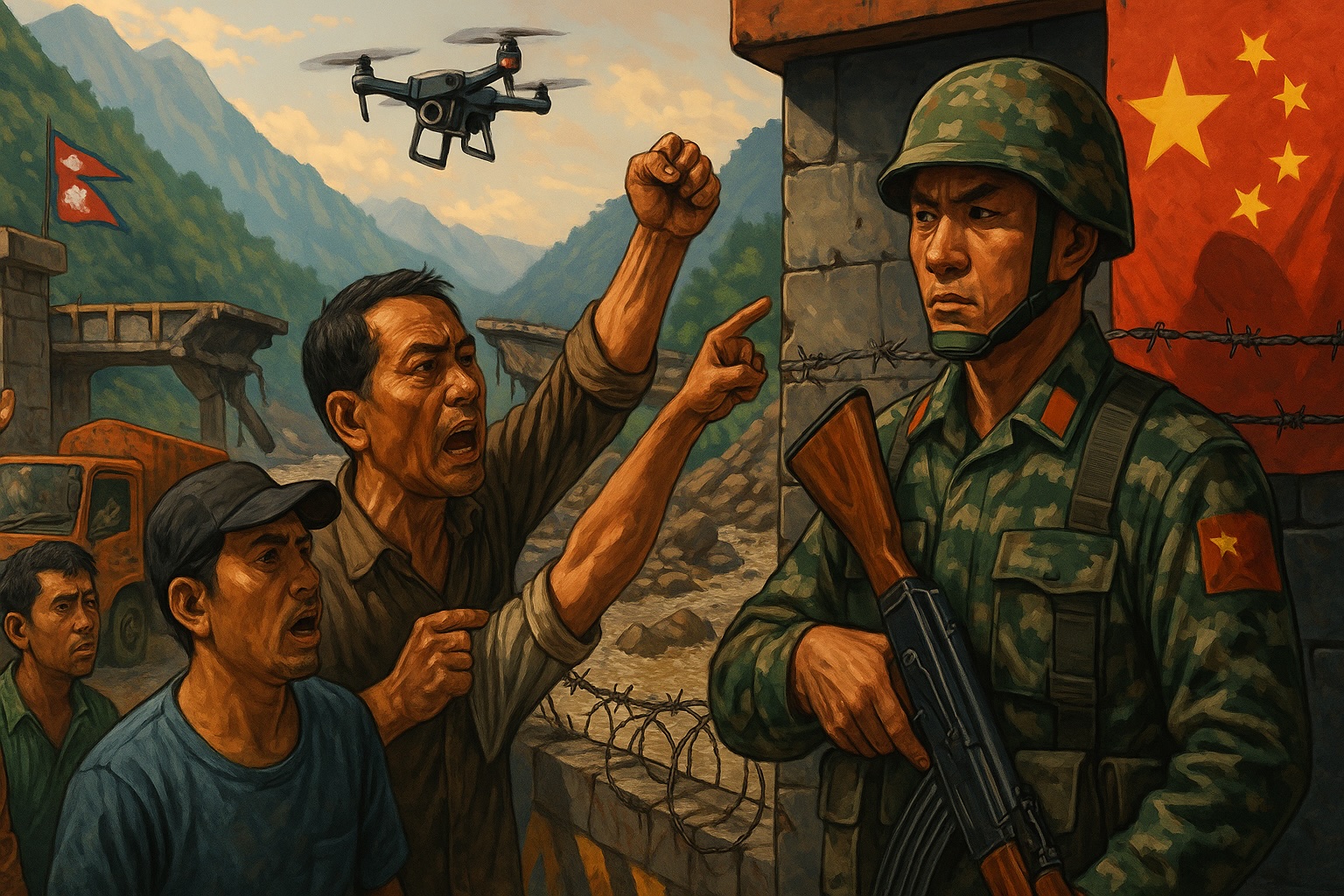Friend or Foe? China’s Infrastructure Scam Leaves Nepal in Perpetual Risk
China Holds Infrastructure Hostage, Blocks Rescue Efforts—Nepal's Sovereignty Faces Brutal Attack

Nepal’s sovereignty has come under unprecedented scrutiny following China's controversial actions and broken promises in the strategically vital border region of Rasuwagadhi. For years, China has occupied key infrastructure projects near the Nepal-China border, notably the Syaphrubeshi-Rasuwagadhi road and the Maitri Bridge, promising solid, disaster-resistant structures. Yet, these commitments have remained hollow, leaving Nepal’s crucial trade route weakened and vulnerable to frequent disasters.
The latest devastating floods on July 8th, attributed to a glacial lake outburst originating from Tibet, obliterated the Maitri Bridge and severely damaged the Rasuwagadhi dry port, crippling Nepal-China trade. Local residents, drivers, and business owners—whose livelihoods depend heavily on cross-border traffic—are now facing unprecedented hardship. Drivers describe the route as a "daily gamble with life," navigating roads damaged by the recurring negligence of infrastructure development.
Adding fuel to this already raging fire, China shockingly detained a Nepali Army rescue helicopter for nearly 90 minutes during crucial rescue operations. This inhumane act not only delayed rescue efforts but intensified local anger, sparking outrage across the nation. China’s refusal to allow Nepalese security officials timely access during an emergency has raised serious concerns about China's real intentions and respect for Nepal's sovereignty.
Further escalating tensions, reliable local and security sources confirm that Chinese authorities have regularly deployed surveillance drones deep into Nepali territory, blatantly disregarding Nepal’s territorial integrity. This aggressive monitoring raises disturbing questions about China’s broader strategic intentions.
The Chinese Ambassador to Nepal, Chen Song, known for previous controversial statements and inflammatory behavior, has remained disturbingly silent throughout this crisis. Critics argue this silence underscores China’s callous indifference and dismissive diplomatic posture toward Nepal and its citizens.
Nepalese political leaders, civil society groups, and affected residents have strongly condemned China's aggressive tactics and blatant disregard for diplomatic norms and humanitarian values. They argue that China, after occupying critical border infrastructure projects without delivering on promises, should issue a formal apology for placing thousands of Nepali lives at perpetual risk.
As Rasuwagadhi residents attempt to rebuild their lives amid the devastation, they question how much longer Nepal can tolerate this disrespectful diplomatic brutality from a neighbor who claims friendship yet undermines national sovereignty at every turn. With growing national outrage and international attention, Nepal now stands at a critical juncture—will it continue tolerating such brutal diplomatic insults, or will this crisis finally lead to a decisive reassessment of Nepal-China relations? The answers will shape not just diplomatic ties but the very dignity and future of Nepal’s sovereign identity.
Sharp Power



![From Kathmandu to the World: How Excel Students Are Winning Big [Admission Open]](https://nepalaaja.com/img/70194/medium/excel-college-info-eng-nep-2342.jpg)
